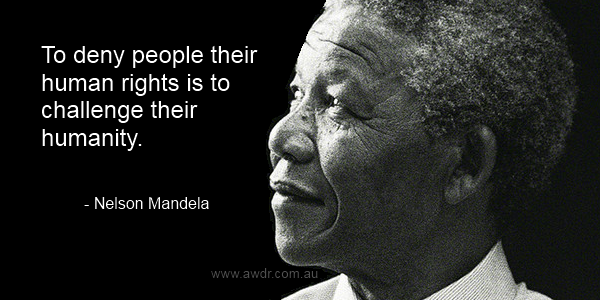Discrimination: All You Need To Know
All Australian employees regardless of who they work for, or the size of the company, have rights to be protected from unlawful discrimination.
Unlawful discrimination is unfavourable or less favourable treatment on the basis of protected attributes. We represent clients who have been discriminated against in employment, contract work, education, and the provision of goods and services.
Discrimination is impersonal and relentless. In the workplace it creates a culture of inequality and injustice. You may be able to bring a discrimination claim on the basis of the following attributes:
- Race
- Sex
- Age
- Disability
- Sexual orientation
- Marital status
- Breastfeeding
- Employment activity
- Gender identity
- Industrial activity
- Lawful sexual activity
- Parental status or status as a carer
- Physical features
- Political belief or activity
- Pregnancy
- Religious belief or activity
- Criminal record
- Personal association (whether as a relative or otherwise) with a person who is identified by reference to any of the above attributes


Supporting Employees against DISCRIMINATION Contact our team for an obligation free consultation.
Discrimination Claims
You are entitled to justice and a fair go, under no circumstances do you have to suffer or put up with discrimination in the workplace. Why should you suffer because of your employer, or their failure to act on your complaints? Many people do not realize that they may be eligible or just not sure as to the merits of their claim, call now to have a confidential discussion regarding your situation.
As Australia’s premier non-lawyer employee representatives, we give honest advice, and put all our energy into getting the best outcome for you. We only represent employees not employers, so our firm does not have conflicts of interest. Call us today!
The Discrimination Act
Both state and federal legislation probibits discrimination against various attributes. Outline below are just a few examples of the various Acts.
In Australia, you are afforded protection from discrimination by the Sex Discrimination Act 1984 (Cth), the Racial Discrimination Act 1975 (Cth), the Disability Discrimination Act 1992 (Cth), the Age Discrimination Act 2004 (Cth), the Equal Opportunity Act 2010 (Victoria), the Anti-Discrimination Act 1991 (Queensland), the Anti-Discrimination Act 1977 (New South Wales), the Anti-Discrimination Act 1998 (Tasmania), the Equal Opportunity Act 1984 (Western Australia), the Equal Opportunity Act 1984 (South Australia), the Discrimination Act 1991 (Australian Capital Territory), the Anti-Discrimination Act (Northern Territory), Anti Discrimination Act 2004, and the Fair Work Act 2009 (Cth).
Racial Discrimination Act 1975 (Cth)
It is against the law to treat someone unfairly because of their race, skin colour, or where they come from. The Racial Discrimination Act 1975 promotes equity before the law for all people regardless of race, colour, or national origin.
Disability Discrimination Act 1992 (Cth)
Under the Disability Discrimination Act 1992 it is unlawful to discriminate against any persons, including in employment on the grounds of their disability. It also makes it unlawful to treat anyone with a disability less favourably. Under the Disability Discrimination Act 1992 it would be deemed unlawful for an employer to treat a person with the disability less favourably than they would under circumstances that are not materially different to a person without the disability.
Age Discrimination Act 2004 (Cth)
Applying to both younger and older workers, the Age Discrimination Act 2004 prohibits discrimination in employment on the basis of a persons age. For example:
- not hiring certain applicants because they don’t fit in with the rest of our staff, because of their age.
- not employing younger workers in the workforce because employers believe they will quickly move on to another job
- advertising a new position for someone aged ‘under 30’ to join a ‘dynamic, young team’
- Forcing someone to retire or making a position redundant, because of an employee’s age, or
- Whether you are intending to do so or not, harassing an employee due to their age
The Age Discrimination Act 2004 covers the recruitment process, and all types of employees.
All ages, young and old, should be treated fairly and enjoy the same opportunities as other.
Equal Opportunity Act 2010 (Victoria)
The Equal Opportunity Act first commenced in Victoria in 1997, with the most up to date and current being the Equal Opportunity Act 2010.
The Victorian State Government defines the Equal Opportunity Act as “to protect people from discrimination on the basis of their individual attributes in certain areas of public life, and provides redress for people who have been discriminated against. It also aims to eliminate, as far as possible, discrimination, sexual harassment and victimisation.”
Anti-Discrimination Act 1991 (Queensland)
The Queensland Anti Discrimination Act 1991was introduced by the Queensland Parliament to provide protection against certain attributes. These attributes include discrimination, harassment of a sexual nature, age, disability, political beliefs, parental status, sexuality, family responsibilities and more, just to name a few.
Anti-Discrimination Act 1977 (New South Wales)
The New South Wales Anti Discrimination Act 1997 covers discrimination against sex, disability, race, age, carer’s responsibilities, martial statement, and more. It’s aimed at supporting employment, the education system, health care, property, banking, and other services.
Anti-Discrimination Act 1998 (Tasmania)
Under the Tasmanian Anti-Discrimination Act 1998 allows you to make a discrimination complaint to the Anti-Discrimination Commissioner if you have been discriminated against. The Tasmanian Anit-Discrimination Act 1998 defines discrimination as treating a person less favourably (worse) than other people because they have a particular characteristic, such as their age, race, sex or disability.
Equal Opportunity Act 1984 (Western Australia)
The Western Australian Equal Opportunity Act 1984 is legislated to prevent discrimination in all areas of work, accommodation, education, and facilities and services. The Act promotes equality of men and women, and persons of all races regardless of their religious or political views, their impairments or age.
Western Australia has a Commission for Equal Opportunity to investigate and conciliate complaints lodged by those who believe they have been discriminated against.
Read more about the Equal Opportunity Act 1984
Equal Opportunity Act 1984 (South Australia)
The Equal Opportunity Act 1984 (South Australia) prohibits discrimination on attributes including, but not limited to: sex, disability, race, age, carer’s responsibilities, martial statement, and more. All rights that form part of the Equal Opportunity Act (South Australia) operate alongside federal ant-discrimination law such as:
- Sex Discrimination Act 1984 (Cth)
- Racial Discrimination Act 1975 (Cth)
- Australian Human Rights Commission Act 1986 (Cth)
- Disability Discrimination Act 1992 (Cth)
- Age Discrimination Act 2004 (Cth)
For more, refer to Equal Opportunity law handbook.

We will make sure to stand up for your rights. Call us today to discuss your discrimination claim!
